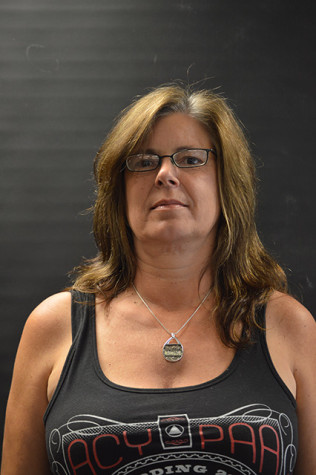In-home caregiving is a rapidly expanding industry and one of the fastest-growing occupations in Sonoma County. This increase is due partly to the large percentage of the retirement age population. Demographically, Sonoma County is a popular destination for many seniors and boasts an abundance of caregiving jobs in the area.
According to the U.S. Census Bureau, we will encounter what is referred to as the “silver tsunami,” a product of the baby boomers, approximately 76 million people born between 1946 and 1964. This can be a promising sign if you are serious about a career in caregiving as the baby boomers leave the workforce.
However, being an in-home support services (IHSS) caregiver myself, it sometimes feels like a thankless job, especially when assisting the severely disabled or handicapped whose needs are extensive and beyond basic caregiving. This, of course, is not the client’s fault but there is no definitive line between the needs provided and the pay received.
IHSS workers are paid by the state and the Health Services Department oversees the program locally. The workers, who provide care for the disabled and elderly, earn $11.65 an hour. That’s $2.65 above the minimum wage and is an insult to those of us who work in the industry.
IHSS should not be confused with In-Home Services (IHS) providing skilled and licensed care of a registered nurse (RN) or licensed vocational nurse (LVN).
Most caregivers I know are not in it for the money. Unfortunately, oftentimes they are forced to choose monthly between paying their rent or bills, because they don’t make enough to survive on while living in the expensive Bay Area, which is a major downside of the industry.
A lot of times workers are drawn to a specific client, which may make the job especially worthwhile. One of my clients, Brianne, is in her 30s, and wheelchair-bound for life due to a neurological disorder called Friedreich’s ataxia. Brianne has the kind of attitude toward life that makes working in this industry special. For example, she has jumped out of an airplane (tandem of course) not once, but a shocking 32 times. Her mom, who also jumps, refers to it as a “mood enhancer.” Brianne is also in a steady relationship, going on for more than 10 years and leads as normal a life as possible under her condition.
Kristen Torres, a caregiver paid by IHSS, said, “Honestly, I do not feel like I am paid enough. If I wasn’t really good friends with my client, it would not be worth it. I couldn’t imagine working for someone who is critically ill, has dementia, or deep-seated emotional problems and only getting paid this much.”
IHSS workers have lobbied for years, in both contract talks and in public demonstrations to the Sonoma County Board of Supervisors for pay closer to $15 an hour. Their most recent raise, from $11.50 to $11.65 an hour, was approved in July 2013.
Living wage advocates expressed disappointment with the board’s decision last year to leave out in-home caregivers from a living wage measure. Living wage ordinances are similar to minimum wage laws in that they set a baseline amount workers must be paid, but differ because wages are tailored to meet a specific group’s cost of living. The three cities in Sonoma County supporting living wage ordinances are Sonoma, Sebastopol and Petaluma.
North Bay Jobs with Justice, a group comprised of labor, environmental, faith and community groups, proposed a $15 per hour minimum wage in hopes of duplicating a successful campaign like Santa Clara, one of the Bay Area’s wealthiest counties. Supervisors passed a comprehensive living wage law setting a minimum pay for about 15,000 county contractors at $19.06 per hour.
Until the pay is equal to the quality of care for in-home county workers and independent contractors, the industry will remain in flux and both sides of the equation will suffer. Caregiving can be a very rewarding career as it is truly a life-saving gift for many who need it. Unfortunately, it is a service that is being neglected by short-sighted people who don’t realize that one day they may need it themselves.



